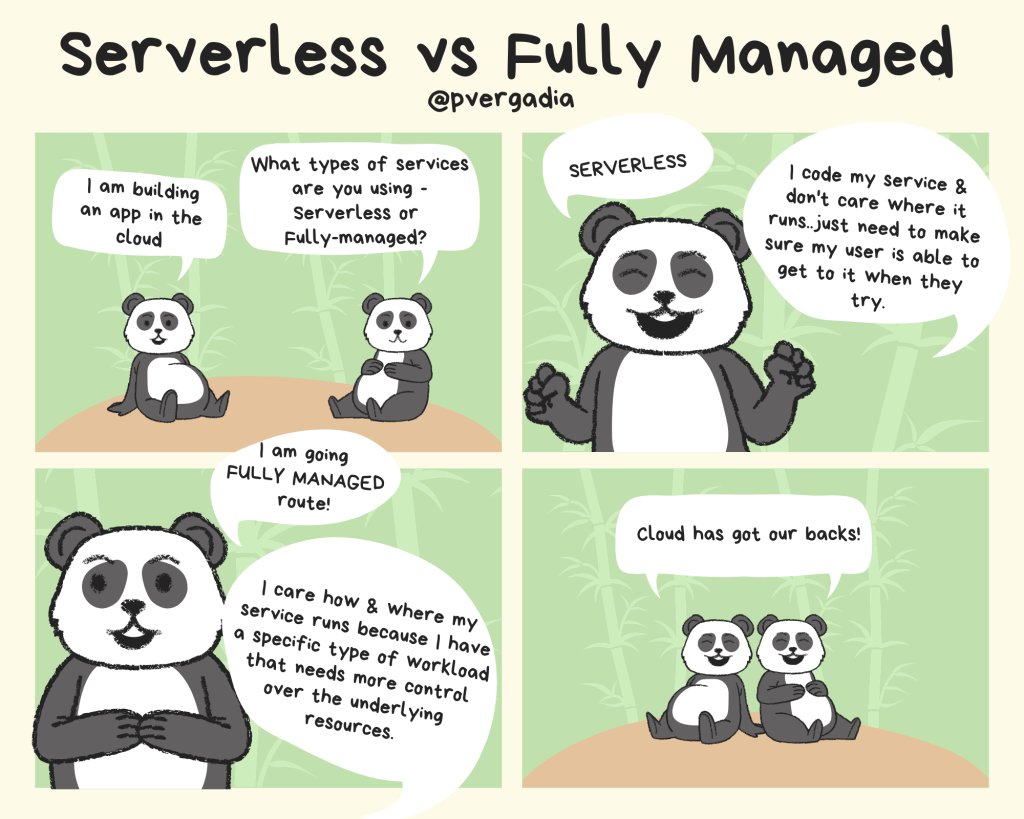To understand the differences between the Database offerings, one has to have a basic understanding of how Databases work. I have narrowed it down to be able to grasp the following bullet points:
- SQL: Does not need to be proficient in SQL. However, one needs to understand the practical differences such as SQL, no-SQL, i.e. relational vs non-relational, schemas etc.
- Database on premise vs. Database in the cloud. What does it mean to be Serverless or Managed Instance?
- What kind of workload will each type of database be most suited for? This is key to know WHEN to use which kind of database offering
What is SQL?
Serverless vs. Managed Instance
For Managed vs. Server Instance, I’ll just drop this image here:
